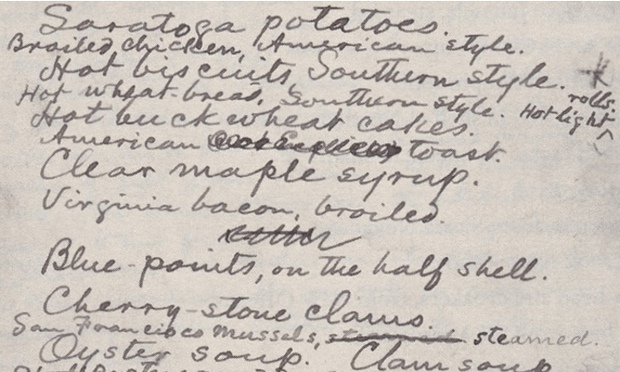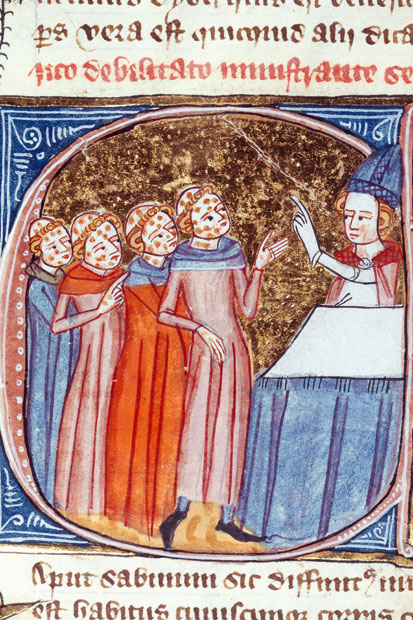Some reviewers are slick and quick. Rapid readers, they remember everything, take no notes, quote at will. I’m the plodding sort, making more notes than I can ever use and underlining so many quotes that, if I put them all in, it would constitute a republication of the book.
But I’ve not done this with Lamentation, the sixth novel in C.J. Sansom’s Tudor crime series featuring his credible and likeable hero, the lawyer Matthew Shardlake. I intended to proceed as normal, but so engrossing is the tale that I didn’t pause long enough to take a note. Even when judged by the high standards of the earlier Shardlake novels, this one stands out — not least because it successfully maintains suspense for over 600 pages, which is going it a bit.
Shardlake is a middle-aged, hunchbacked member of Lincoln’s Inn who would like to marry but has never found a wife. His practice is mostly property law, but he has contacts on the fringes of the royal court and occasionally the great figures there —ranging from Thomas Cromwell in the earlier novels to Catherine Parr, Henry VIII’s sixth and last queen, in this — call upon his services. He is invariably reluctant, since such requests are always dangerous, leading him into troubled political waters with hidden currents, strong and deep.
This story is set entirely in Tudor London during the final months of Henry’s reign. The ailing king is becoming ever more arbitrary and unpredictable, favouring the reformers (Protestants) one month, the traditionalists (Catholics) the next, rejecting papal authority while secretly parleying with the Pope’s emissary, encouraging reform while publicly burning radicals and any who deny the Real Presence in the Mass. As several of Shardlake’s associates discover, the only safe answer to questions about your religious belief is to say you worship as the king decrees. Shardlake himself is a disillusioned reformer, whose doubt and agnosticism have a rather modern ring.
In answering the call from Queen Catherine to help recover a stolen text she wrote which makes her own reformist sympathies dangerously clear (the Lamentation of the title), Shardlake is forced to confront that great religious divide, the political issue of the age, head on. It is the backdrop to all the Shardlake novels, but here it is centre-stage, the origin and conclusion of all the action.
The consequences of being on the wrong side are made horribly clear when Shardlake is forced to watch the burning of three radicals. Sansom’s description of this real-life scene, based on eyewitness accounts, is vivid without being gross (they were treated mercifully, relatively speaking: bags of gun-powder were tied round their necks, designed to explode when the flames reached that far).
Shardlake’s secret and hopeless passion for Catherine prompts him to persist in the increasingly bloody quest for her manuscript when others have given up. Their relationship — never less than proper — is carefully drawn and Catherine comes over as the sympathetic and attractive figure she probably was (if somewhat unlucky in love).
It is a mark of authorial self-discipline that Sansom wears his considerable historical research lightly, subordinating it to character and action. As in the earlier volumes, historical figures such as Richard Rich and the young William Cecil are successfully evoked without typecasting or self-indulgence disguised as empathy. There are also some memorable minor characters, such as the tragic and vexatious litigant, Isabel Slanning, who contribute to the sinuously-unfolding story in often unexpected ways. The orchestration of plot over 600 pages, and the final twist, is literary craft of a high order.
Historical fiction — especially historical crime fiction — has often been regarded as a literary branchline, interesting and picturesque but not quite the real thing. This now is changing, and rightly, since the qualities required to evoke imagined historical worlds are precisely those involved in rendering the present. With the Shardlake series, and with this volume in particular, Sansom has surely established himself as one of the best novelists around.
Got something to add? Join the discussion and comment below.
Get 10 issues for just $10
Subscribe to The Spectator Australia today for the next 10 magazine issues, plus full online access, for just $10.
Available from the Spectator Bookshop, £18 Tel: 08430 600033
You might disagree with half of it, but you’ll enjoy reading all of it. Try your first month for free, then just $2 a week for the remainder of your first year.














Comments
Don't miss out
Join the conversation with other Spectator Australia readers. Subscribe to leave a comment.
SUBSCRIBEAlready a subscriber? Log in